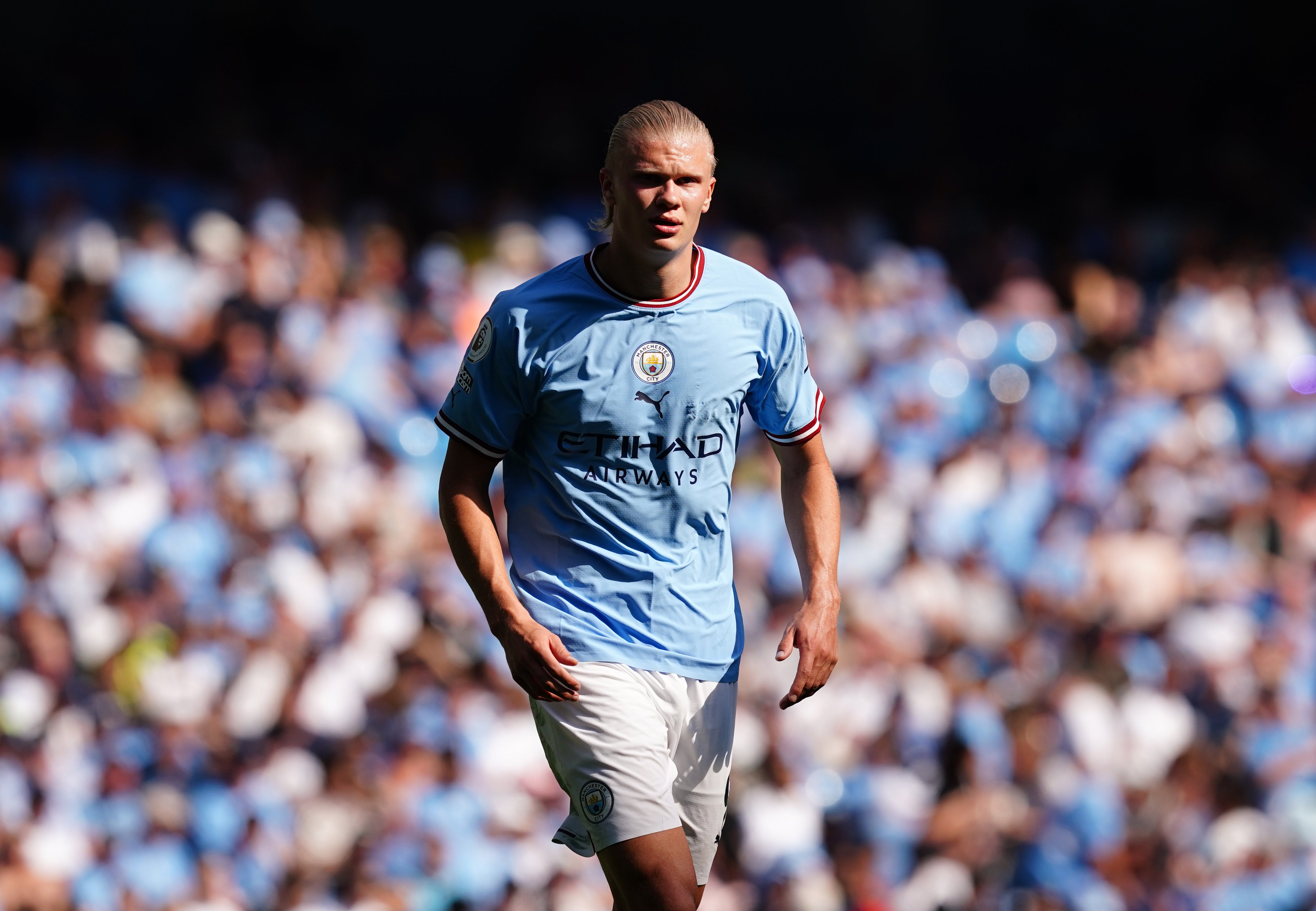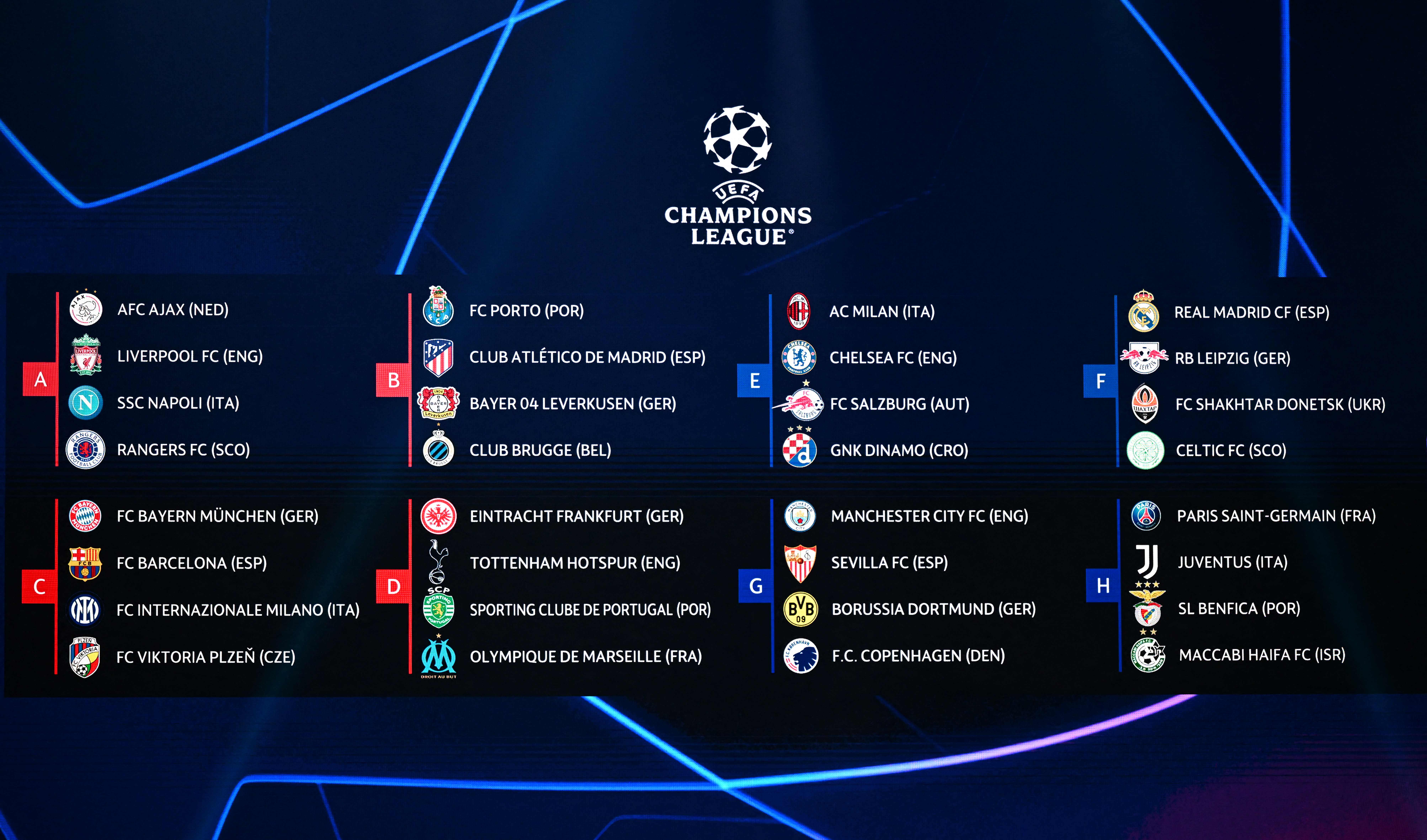
The end of the Champions League group stage can’t come soon enough, because it is impossible not to feel that this season's will be settled predictably quickly. That is down to much more than the World Cup dictating this penultimate edition of the format, to be changed in 2024, will conclude by the first week of November.
While there are always more surprise results than people expect, most of the super clubs have hugely forgiving paths to their traditional place in the last 16. All of Real Madrid, Manchester City, Paris Saint-Germain, Chelsea, Liverpool and even Tottenham Hotspur should get through with ease.
Group C - featuring Bayern Munich, Barcelona, Internazionale and Robert Lewandowski’s return to the Allianz - is the only pool that could be described as an old-fashioned “group of death”. It is an old point in itself now to say the competition used to be full of such challenges, but that makes it all the more relevant. It looks like it has never been as bad. Little wonder that the main intrigue around the draw in Istanbul this week has been over the mid-tier clubs pushing to start remedying prize money.
That points to how none of this is the fault of the group stage as a format, but rather the financial disparity that Uefa and this very competition have fostered and overseen.
Even some of the better individual fixtures are attractive precisely because they are predicated on that economic gap.
Erling Haaland goes back to Borussia Dortmund but he only left because one of the biggest clubs in Germany and Europe couldn’t fulfil his ambitions, a simply remarkable statement when you really stand back. In previous years, Dortmund’s match against City would have been an engaging game even beyond the Norwegian’s return, but does anyone expect anything other than a comfortable win for Pep Guardiola’s side? And that’s Dortmund, with one Champions League to City’s none.

We don’t even have to talk at this point about Guardiola’s “holy grail” because none of this really matters until February. Likewise Paris Saint-Germain’s similar “quest” and Antonio Conte’s poor record in the competition. We’ll have plenty of time to discuss all of that in a few months, when the Champions League "really begins".
What admittedly does matter now are occasions like Celtic playing Real Madrid or Rangers playing Liverpool - in any of the stadiums. Try telling the Scottish supporters, or those of Maccabi Haifa, this doesn’t matter. There's then Shakhtar Donetsk in Celtic's group, in what promises to be the most emotional story of all.
But that's something very different to the general saminess of the draw. One of the reasons it feels so special for Celtic and Rangers is because two distinguished clubs are in a damaging limbo where they have become too big for their domestic leagues but not big enough for the Champions League. And a side effect of that is that the prize money from this will put them way beyond the rest of Scotland for at least another half-decade. This is why the Champions League itself has been so ruinous.
On that, Rangers do actually have a real chance of getting out of their group, in what could be one of the stories of the season - but with the same caveat. Ajax and Napoli have recently done well in the competition, and the reward for that? They’ve lost many of their best players - and a manager - to wealthier clubs.
It makes them vulnerable, at the very least. And points to why most of the unpredictability in this elite competition revolves around who will finish second.

There is at least genuine peril to Group C, but not quite because it is the one group between three big names, and Plzen. It is because one of them, Barcelona, have taken such a calculated risk to try and stay afloat at this level. Make no mistake about that. Barcelona’s entire financial strategy is based on being a glamorous club that goes far in the Champions League, so their competition is about more than glory. They can't make a mistake.
It’s just that, even there, we run up against a familiar theme. Internazionale, who have won the competition three times, are less than two-thirds the financial size of Bayern or Barca. The Italians would need to significantly overperform to knock them out.
You can say similar with their neighbours, Milan - seven-time champions - and Chelsea. The 2021 winners going to the San Siro should be one of the great occasions. Instead, it largely has the feel of a box-ticking exercise, which almost sums up this entire stage.
It starts in 12 days to set off a period when six rounds will take place in eight weeks, because of another noxious influence on the game: the Qatar World Cup.
The intensity of that may bring more surprises than expected, which will give the early illusion of unpredictability. But enough to prevent, say, Spurs’ passage feeling like “a Europa League group” in the way it’s already being described? The likelihood is the super clubs will have squads that are just too big. Even if they drop points in early games, the safety net is now too high.
The excitement of the group stage has never been lower. As has been the case for the last decade, 14 to 15 of the 16 wealthiest clubs will get through. That’s not sport, that’s a balance sheet.







